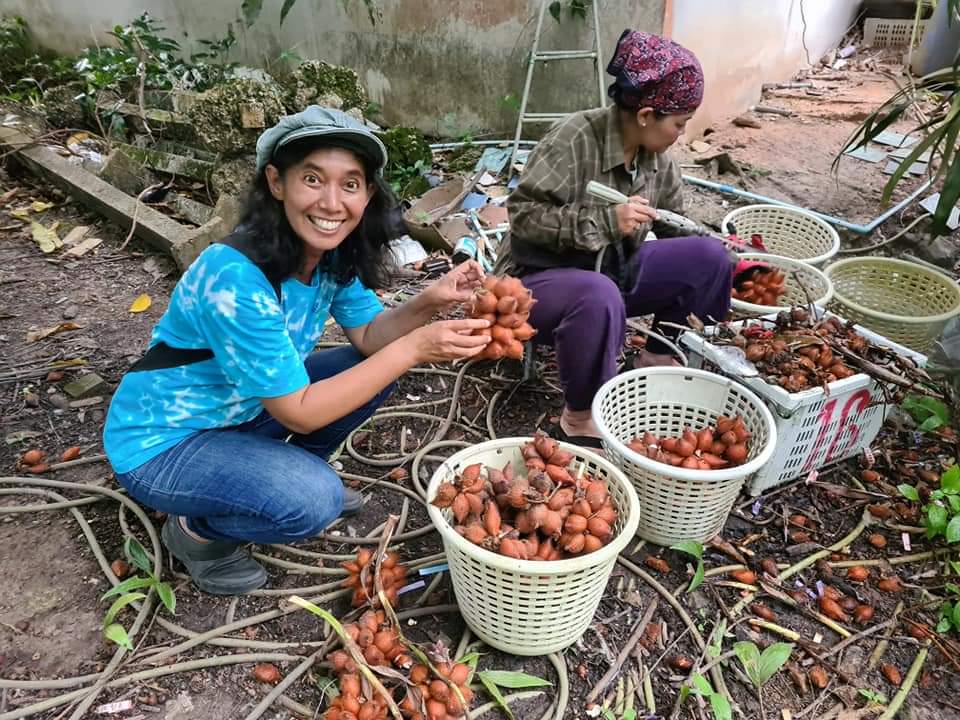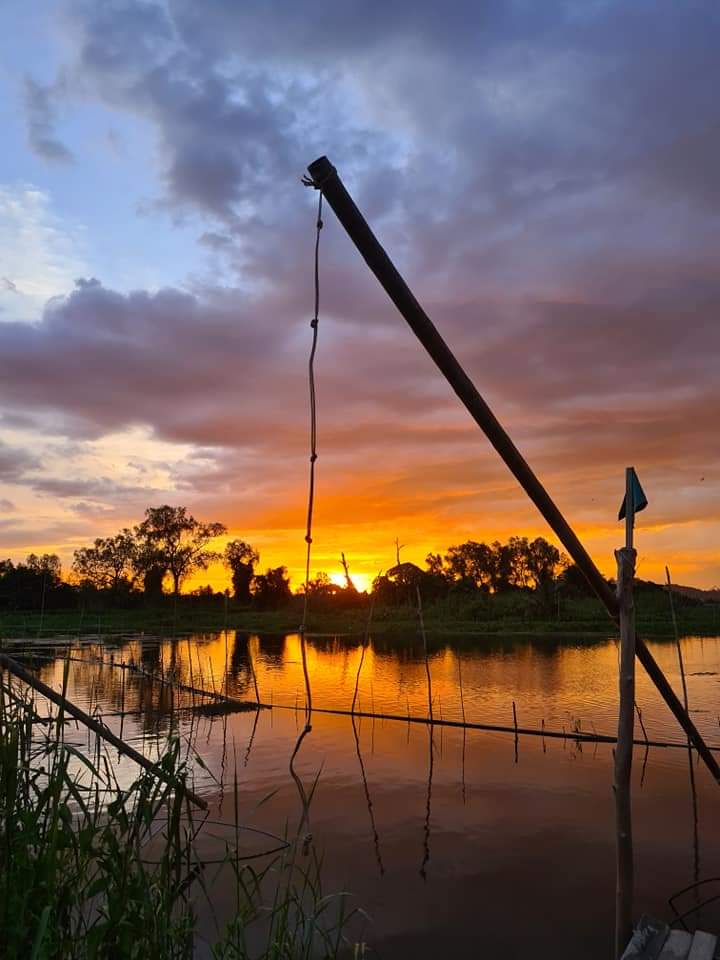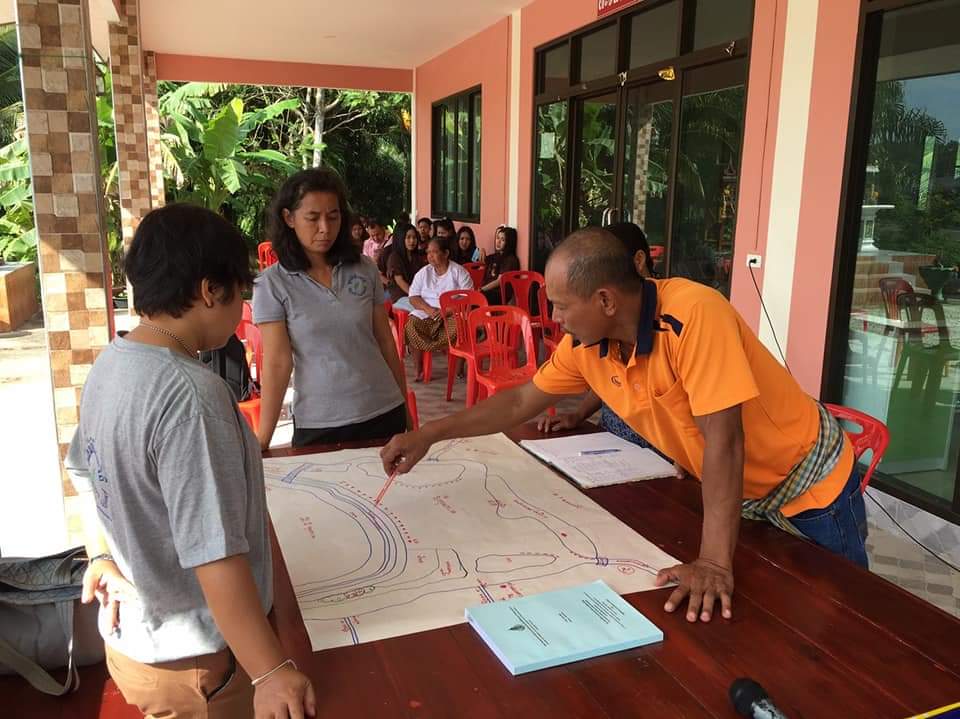Eco/Agro/Community/Sustainable Tourism & Responsible Travel
EcoThailand has a firm belief in the future of Sustainable Tourism, Ecotourism, Agrotourism and Community Tourism in the Thai Gulf and believe them to be key to the environmental, community and financial well being of the area looking towards the future. The recent covid19 hit, and increasingly difficult travel costs and prospects for the leisure industry have had a negative impact on traditional mass tourism ventures and venues and has reinforced our viewpoint.
We have recently expanded our advice, workshop, support and MicroGrants into this area for local communities who also wish to develop their Eco and Community activities. We now work with communities at Khuntalai Lake, Surat Thani City, Koh Phangan and Koh Paluai, and continue with Phangan Community Garden and Raitiaviset Organic Farm on Koh Phangan, all of whom have community tourism interests. Our work has been enhanced in 2022 by a grant from Global Fund for Community Foundations (GFCF) allowing further development of our existing projects and expansion into new project areas. We consult with, and are developing projects with, Rajhaphat University.
EcoThailand Foundation are working with TEATA (Thai Ecotourism and Adventure Travel Association) and several global travel companies towards curating and promoting Sustainable Tourism on Koh Phangan in 2023 and beyond.






What is eco and community tourism?
Ecotourism is now defined as “responsible travel to natural areas that conserves the environment, sustains the well-being of the local people, and involves interpretation and education” (TIES, 2015). Education is meant to be inclusive of both staff and guests. Ecotourism is about uniting conservation, communities, and sustainable travel.
- Minimize physical, social, behavioral, and psychological impacts.
- Build environmental and cultural awareness and respect.
- Provide positive experiences for both visitors and hosts.
- Provide direct financial benefits for conservation.
- Generate financial benefits for both local people and private industry.
- Deliver memorable interpretative experiences to visitors that help raise sensitivity to host countries’ environmental and social climates.
- Design, construct and operate low-impact facilities.
- Recognize the rights and spiritual beliefs of the Indigenous People in your community and work in partnership with them to create empowerment.
- Join the EcoThailand Low Emission Support Scheme and/or the EcoThailand Sustainable Island Certification scheme – click here for more details.
Community-based tourism (or CBT) has many overlapping and common factors, as has agrotourism. CBT is part of responsible tourism, providing holidays that benefit both the traveller and the destination.
CBT is tourism owned or managed by the local community, with the aim that the community directly benefits from that tourism. An example could include a home stay run by the community in a rural location that normally wouldn’t attract many tourists.
It is all about treading lightly on homes and cultures, positive interactions between guests and their host countries, and a growing awareness of our impact on the well-being of the places where we take holidays. As an increasingly popular alternative to traditional mass market offerings, CBT essentially seeks to minimize the negative effects of tourism while empowering local people at a grassroots level and maintaining the environment for the benefit of both local people and visitors.


.
What is Sustainable Tourism?
There are many terms that float around that may sound similar but actually refer to something distinct.
Definition of Sustainable Tourism
Sustainable Tourism refers to sustainable practices in and by the tourism industry. It is an aspiration to acknowledge all impacts of tourism, both positive and negative. It aims to minimize the negative impacts and maximize the positive ones.
Negative impacts to a destination include economic leakage, damage to the natural environment and overcrowding to name a few.
Positive impacts to a destination include job creation, cultural heritage preservation and interpretation, wildlife preservation landscape restoration, and more.
Sustainable tourism is defined by the UN Environment Program and UN World Tourism Organization as “tourism that takes full account of its current and future economic, social and environmental impacts, addressing the needs of visitors, the industry, the environment and host communities.”
Additionally, they say that sustainable tourism “refers to the environmental, economic, and socio-cultural aspects of tourism development, and a suitable balance must be established between these three dimensions to guarantee its long-term sustainability” (UNEP & UNWTO, 2005: 11-12. Making Tourism More Sustainable – A Guide for Policy Makers).
What is Responsible Travel?
Responsible Travel refers to the behavior of individual travelers aspiring to make choices according to sustainable tourism practices. The behaviors usually align with minimizing the negative impacts and maximizing positive ones when one visits a tourism destination.
Support for EcoThailand Foundations schools educational programs, environmental projects or sustainable tourism initiatives can be made at:
https://ecothailand.org/support-us/
EcoThailand supports OTOP principles and projects within Thailand. For an overview of OTOP … Read more …
Should you wish to to discuss any aspect of sustainable tourism, community tourism, agrotourism or ecotourism, please Contact Us.
Read the National Geographic article on Community based Tourism in Thailand

